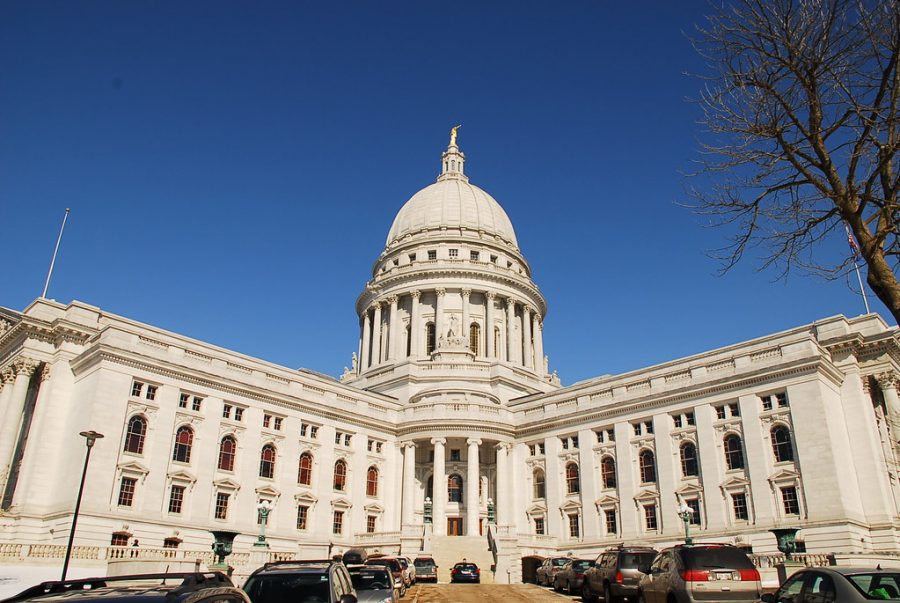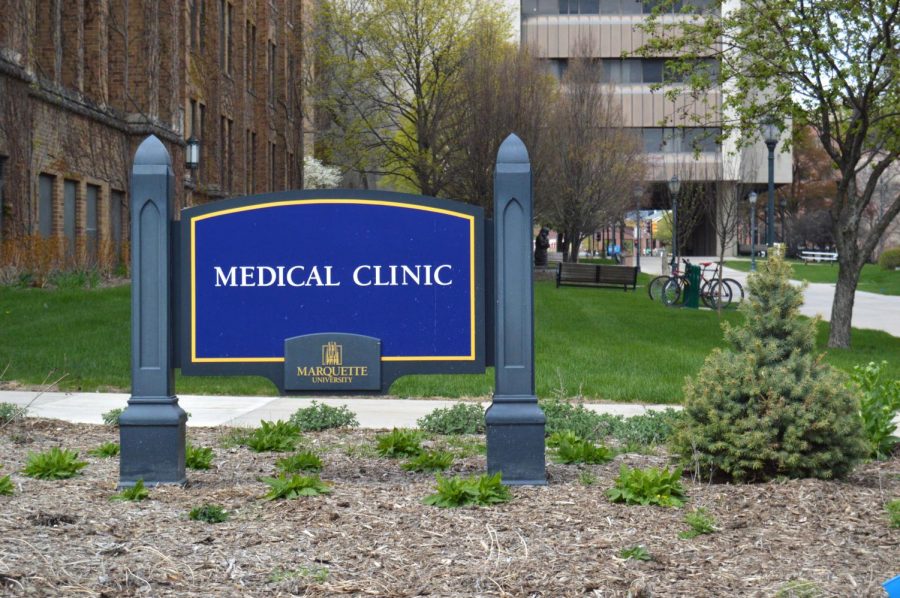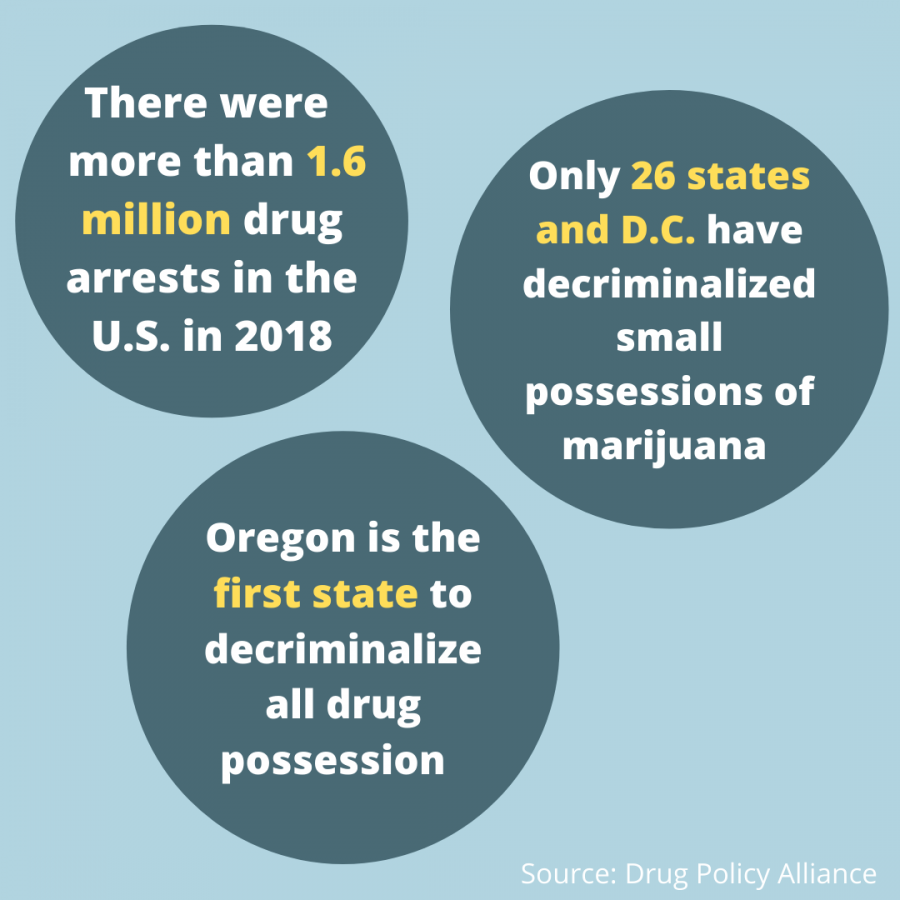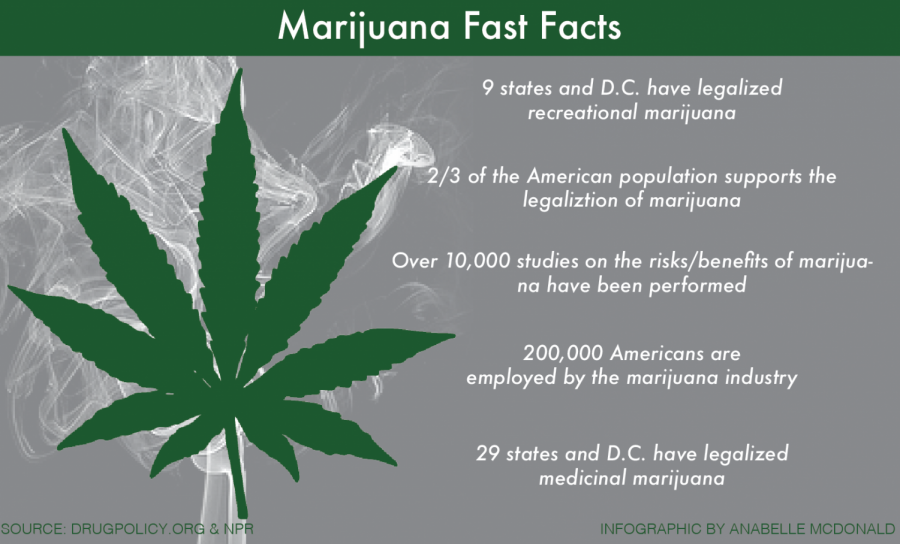The legalization of the recreational use of marijuana in Colorado and Washington last week has raised questions about the drug’s future in other areas, including Wisconsin and at Marquette.
While recreational and medical uses of marijuana are now legal in Colorado and Washington, the plant remains illegal under federal law.
Over the past 12 years, 18 other states states have also legalized the medical use of marijuana or decriminalized its recreational use, meaning that those caught using marijuana would not face jail time.
A recent Gallup Poll indicated that a record-high 50 percent of Americans favor legalizing marijuana use. The poll showed that liberals and individuals 18 to 29 years old were among the biggest supporters, while those 65 years old and older were most opposed.
This support has increased by 47 percent since 1969, despite marijuana’s being categorized as a Schedule I drug under the Controlled Substance Act, meaning it has no accepted medical use.
Eric Marsch, communications director for Southeast Wisconsin’s National Organization for the Reform of Marijuana Laws chapter said the legalization of recreational marijuana on only a state-level poses problems for growers and distributors.
“Since the legally operating stores will be publicly known, (the stores) are essentially sitting ducks for federal charges,” Marsch said.
Marsch said, however, that the passing of Amendment 64 in Colorado and Initiative 502 in Washington has revitalized the organization’s efforts.
“The historic success in Washington and Colorado have energized our movement and proven that these efforts are not futile,” he said. “I think just the simple fact that the initatives passed will cause many people to finally give serious consideration to the idea of legalization.”
Green Health, Marquette’s marijuana advocacy group, focuses on the benefits of medical marijuana and works with lobbying groups such as Wisconsin’s NORML.
Anthony Lanz, a senior in the college of Arts & Sciences and the founder of Green Health, said the legalization of recreational marijuana has helped break some of the stereotypes associated with it.
“Legalization of marijuana in both Colorado and Washington shows that there is a large constituency that believes that prohibition doesn’t work and that our laws towards drugs must be revised,” he said.
Lanz said economists have claimed that the legalization in Colorado and Washington will bring in between $5 million and $22 million in revenue. He said the legalization will change the legal sector because it will not have to deal with marijuana-related issues as much.
Lanz said the issue of negative stigmas, however, still remains.
“People view users of marijuana as lazy, slow, childish and not giving back to society,” he said.
Lanz said the legalization of the recreational use of marijuana will push public debate about legalizing it in other states and show the federal government that Americans see this as a serious and pressing issue.
“We are talking about the number one cash crop in the U.S., and it is not being regulated nor taxed,” Lanz said.
He said ignoring the issue of marijuana is not helping the nation’s youth.
“Research has shown that children have said that it is easier for them to get cannabis than cigarettes or alcohol,” he said. “I don’t think that this reflects poorly on cannabis, but it shows that the prohibition is not stopping the use of the plant but letting it go unregulated and allowing children to use it without direction.”
While states and organizations are making strides to legalizing the medical and recreational use of marijuana, the drug’s future remains to be seen, but Lanz said the progress made in Colorado and Washington will benefit efforts.
“By legalizing it in certain states, the discussion of it as a benefit to American society begins,” he said. “It can help facilitate research on the plant and its benefits to humans.”







